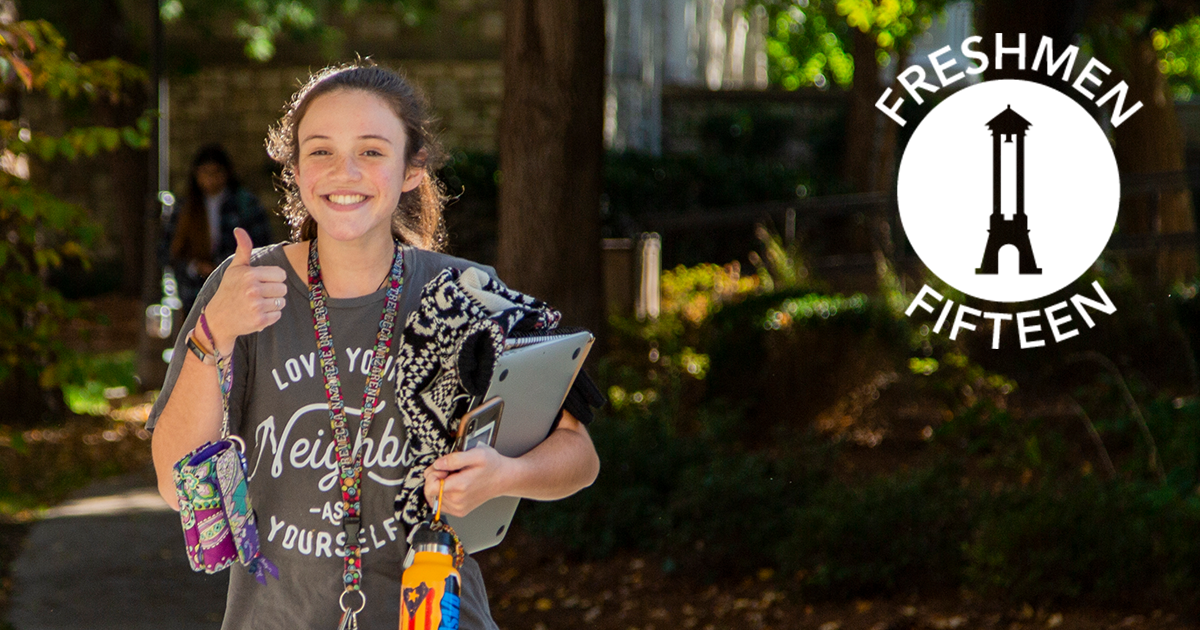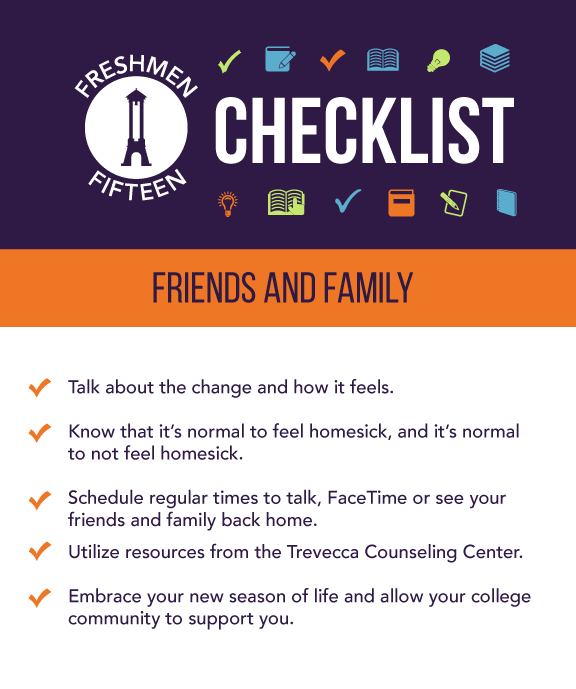Freshmen 15: Relationships with Friends and Family


Today’s post is part of Freshmen 15, a year-long blog series that will explore 15 topics traditional undergraduate students often face during their first year of college. Trevecca students, faculty and staff members will weigh in over the course of the academic year as we examine loneliness, living with roommates and more.
When starting college, it’s normal to have some concerns—like picking a major, affording tuition and more. As the holiday season approaches, one concern may be how to invest in your relationships with friends and family.
The added independence and responsibility of college life has probably caused a shift in those relationships, but Jacelyn Zapf, a counselor in the Trevecca Counseling Center, and Trevecca senior Jennifer McNeal offered a few tips about how to nurture them as you transition from high school student to young adult.
Issues with family and friends manifest in many ways, Zapf pointed out. It’s not always obvious, but she says most issues come up during general conflicts. These include things such as communication issues, boundary issues, emotional dysregulation and anxiety.
For McNeal, the main issue that arises between her and her family is time. Despite this, McNeal said Brian, her husband, is her biggest cheerleader and continues to support her. While she commutes and is still able to see her family every day, it is sometimes only for a short amount of time. For incoming freshmen who live on campus, the time they get to spend with their family is even shorter.
Zapf, who is pursuing a master’s degree in clinical mental health therapy at Trevecca, said there should be more conversations around the dynamic between students living on campus and their families and friends at home.
She said the experience is often equally hard for both sides.
“There is a tremendous amount of change that occurs when someone is taken out of their typical environment and placed in a new one,” Zapf said. “For the student’s friends and family who are left behind, this transition can feel life-changing. When the student leaves, they are headed to a different place that offers them the opportunity to build a foundation and embrace new experiences somewhere fresh. This transition is different for friends and family back home because they remain where they are and must adjust to being in the same place—but without someone important to them.”
While the change can be challenging for everyone, there are systems set in place at Trevecca to help students. Zapf’s advice to freshmen is to find things to do that help them to maintain as much contact with home as they desire. Setting up a Skype date to eat dinner with your family once a month or to grab coffee with a friend are simple things but can help you feel connected with your community from a distance. It’s OK to be homesick, Zapf says, and it’s also OK not to be.
Whatever your individual situation, the Trevecca Counseling Center and the staff in the Center for Student Development can be helpful support systems.
According to McNeal, Trevecca has been helpful when it comes to relationships with friends and family, but also relationships with others. Using the tutoring center and having relationships with professors helps her manage stress.
“Trevecca has helped me develop long-lasting relationships that will take me beyond the classrooms and further into my career,” she said. “They have laid the foundation into my next chapter as a leader and I will forever be grateful.”

